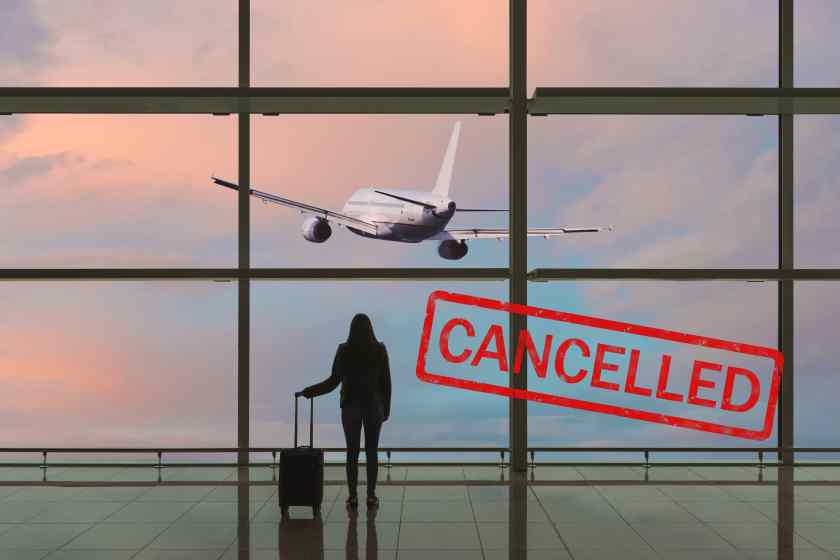Wednesday, June 25, 2025
The Israel-Iran standoff has heavily affected the world’s air travel with nearly 5% flights bound for the region canceled during June 2025. Of a total of 32,583 scheduled flights into major Middle East cities like Dubai, Tel Aviv, Doha, and Abu Dhabi, 1,552 flights have been canceled, according to aviation analytics company Cirium. The air travel for Hong Kong, however, remains barely affected.
Impact of the Israel-Iran Conflict on Middle Eastern Flights
As the geopolitical tensions in the Middle East escalate, with Israel and Iran at the center of the conflict, global airlines have been forced to adjust their flight schedules. The U.S. military’s recent strikes on Iranian nuclear sites, coupled with Tehran’s retaliation, have created significant instability in the region. In response to the growing instability, airlines have canceled flights to the region, with nearly 5% of scheduled flights to Middle Eastern hubs affected.
Cirium’s data shows that of the 32,583 flights scheduled to the region, 1,552 were canceled, resulting in a 4.76% cancellation rate. The major airlines, including British Airways and Singapore Airlines, have been forced to temporarily suspend or modify their operations, prioritizing passenger safety and flight security.
Hong Kong’s Flight Operations Remain Uninterrupted
While the conflict has disrupted flight schedules to and from the Middle East, Hong Kong’s aviation sector has remained unaffected. Cirium reports that no flights between Hong Kong and the Middle East were canceled in June 2025. Hong Kong-bound aircraft typically fly over Myanmar, India, and other non-conflict zones to avoid the affected areas. According to Mike Arnot, a spokesman for Cirium, “Hong Kong’s flight operations have remained largely unaffected, with airlines continuing to operate routes to Dubai, Doha, and Riyadh.”
Emirates, Qatar Airways, and Cathay Pacific Airways are all still operating flights to and from Hong Kong, with no cancellations or schedule disruptions. Emirates currently operates a twice-daily service between Hong Kong and Dubai, while Qatar Airways maintains a similar schedule between Hong Kong and Doha. Cathay Pacific continues to fly to Dubai and Riyadh. This stability in flight operations to and from Hong Kong comes as a relief to passengers traveling between the two regions.
The Hong Kong Civil Aviation Department (CAD) has been actively monitoring the situation, ensuring that Hong Kong’s international airports remain safe and secure. According to the CAD, “The airport operations are normal, and no disruptions have been reported. We continue to follow the guidelines set by the International Civil Aviation Organization (ICAO) to ensure flight safety.”
Global Airlines Adjust Schedules in Response to the Conflict
In contrast to Hong Kong’s unaffected operations, airlines worldwide have had to reassess their flight schedules due to the ongoing conflict. British Airways, for instance, suspended flights from London to Dubai and Doha, prioritizing passenger safety. Although flights were temporarily halted, the airline later announced that operations would return to normal after further safety assessments.
Similarly, Singapore Airlines suspended its daily flight between Singapore and Dubai for several days, calling the situation “fluid.” Affected passengers were offered flexible rebooking options or full refunds for canceled flights. Many other airlines, including Lufthansa and Air France, also made schedule adjustments, either canceling flights or rerouting services to avoid conflict zones.
For travelers planning to visit the Middle East or transiting through the region, it is crucial to monitor airline schedules and flight updates. Due to the fluid nature of the situation, flight cancellations and changes may continue as airlines respond to the evolving conflict.
Cathay Pacific and Hong Kong’s Position
Cathay Pacific has also continued to operate flights to Dubai and Riyadh without interruption. A Cathay Pacific spokesman emphasized the airline’s commitment to ensuring passenger safety: “Our aircraft do not fly through the conflict zones, and we are proactively reviewing flight routes to ensure that all operations remain safe.”
In addition, Hong Kong International Airport continues to operate as usual, with no delays or cancellations reported for flights to or from the Middle East. The Airport Authority has assured passengers that it is working closely with airlines and authorities to monitor the situation, prioritizing safety and security.
Safety Protocols and Regulatory Oversight
The Civil Aviation Department (CAD) in Hong Kong has also been working in close communication with the International Civil Aviation Organization (ICAO) and airlines to ensure that flight operations continue safely. Under ICAO guidelines, the CAD maintains close monitoring of any security concerns that may arise due to regional instability. The department has reassured travelers that all safety protocols are being followed, and flights to and from the Middle East are operating under normal conditions.
The airport authority in Hong Kong has confirmed that the situation is being closely monitored, and all precautions are in place to ensure the safety of both passengers and airline crew members. Additionally, flights between Hong Kong and Israel have been suspended, as the region remains under heightened security risks.
Conclusion
While the Israel-Iran conflict continues to disrupt global aviation, Hong Kong’s routes have remained unaffected. Travelers flying to and from Hong Kong can rely on the stability of their flight schedules, as airlines such as Cathay Pacific, Emirates, and Qatar Airways continue operations without cancellations. However, for those traveling to or from the Middle East, it is important to stay updated on flight status and be prepared for possible disruptions in the coming days.
The global air sector’s capacity to manage theses challenges will be most important as the crisis plays out in the Middle East. For passengers, reaching out to the airlines for the most current information and the capacity for travel arrangements to be rearranged will be essential for successful travel arrangements.
(Sources: Hong Kong Civil Aviation Department, Airport Authority Hong Kong, Reuters, South China Morning Post, The Times of India)



